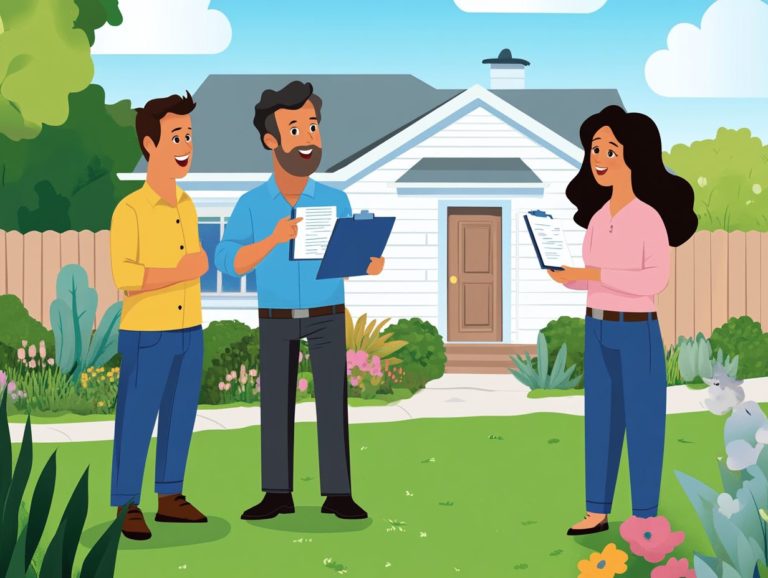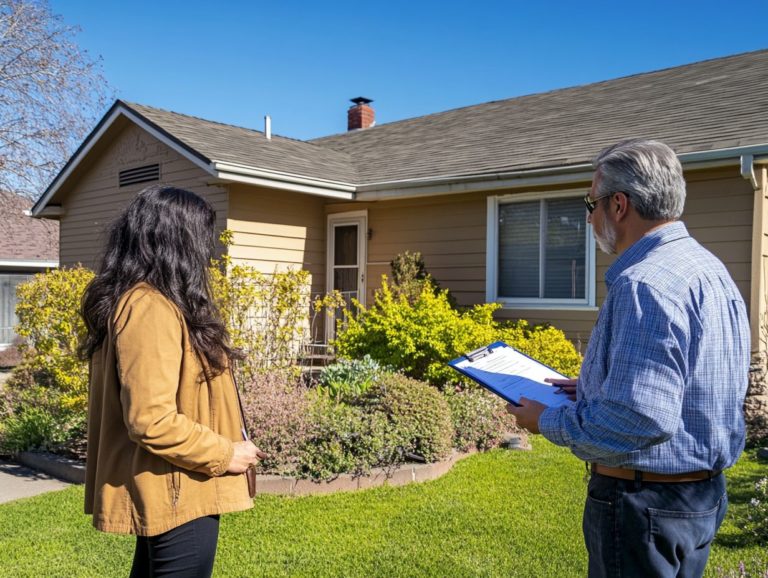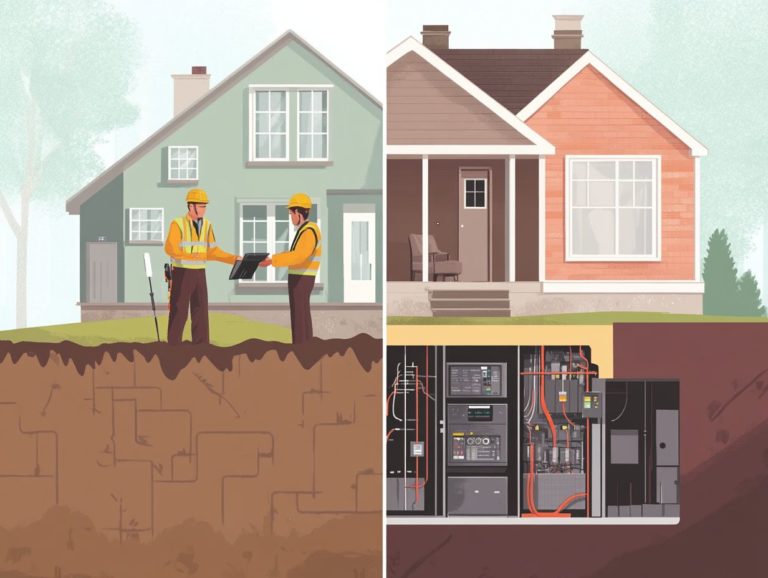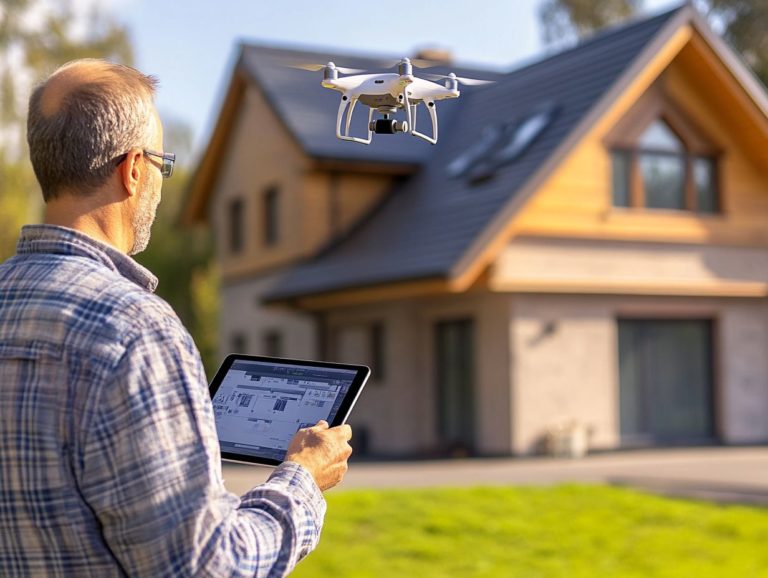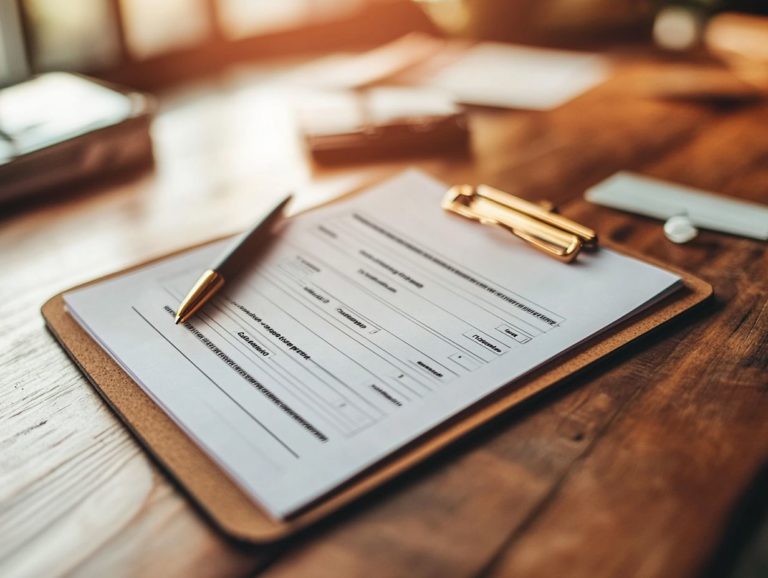Essential Safety Checks During Home Inspections
When considering the purchase or upkeep of a home, prioritizing safety should always be paramount.
Home inspections are vital in revealing potential hazards. They ensure that both the structure and its systems provide a secure environment for everyone inside. From evaluating the exterior for structural integrity and pest issues to scrutinizing the interior electrical and plumbing systems, these assessments are indispensable.
This article will walk you through the significance of home inspections, highlight common safety concerns, and offer valuable tips to prepare for an inspection. This way, your home remains the sanctuary it s meant to be.
Contents
Key Takeaways:
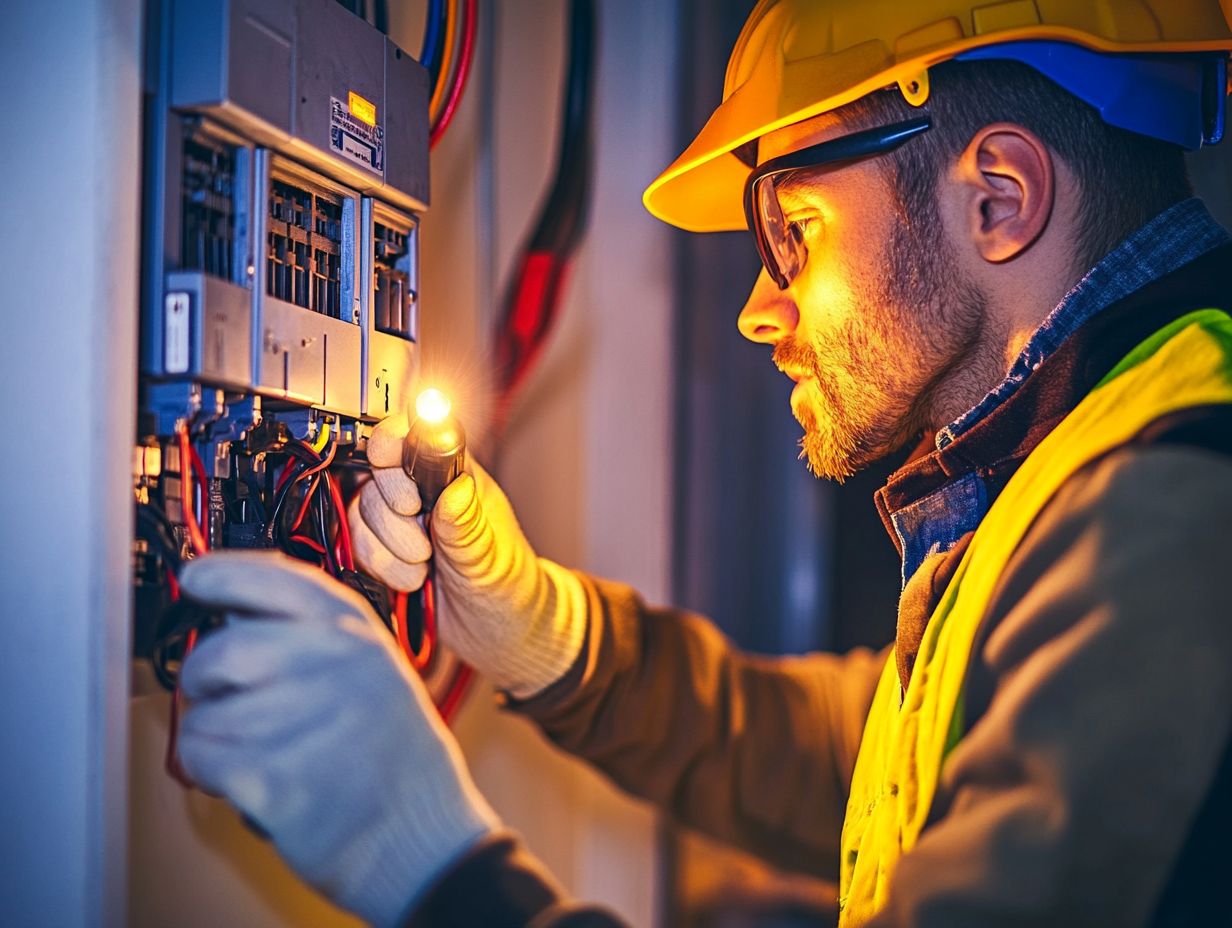
Home inspections are crucial for identifying potential safety hazards and ensuring the structural integrity of a home. To get the most out of this process, consider the top 10 things to check during a home inspection.
Exterior safety checks should include assessing the home’s structure and looking for red flags to look for in home inspections, as well as signs of pests or environmental hazards.
During interior safety checks, it’s important to evaluate electrical and plumbing systems, as well as inspect fire safety measures, including understanding the importance of electrical inspections in homes.
Importance of Home Inspections
Home inspections are essential in the home buying journey. They enable you to pinpoint potential issues that could impact your investment, including safety concerns, structural integrity, and adherence to inspection standards.
A comprehensive assessment by a licensed home inspector can uncover valuable insights into the state of various home systems. This gives you the power to make informed decisions before finalizing your purchase.
Why Conduct Home Inspections?
Conducting a home inspection is essential for you as a homebuyer. It provides a comprehensive report that outlines the property s condition and safeguards your earnest money investment.
This careful inspection can reveal hidden issues that might otherwise slip under the radar. It could potentially spare you from significant repair costs down the line. For example, structural problems or outdated electrical systems could emerge as deal-breakers, leading you to rethink your options or negotiate the purchase price.
These insights are crucial in the home appraisal process. They shape how lenders perceive the property s value. With a clear understanding of the inspection findings, you ll be well-prepared to engage in discussions about necessary repairs with the seller, ensuring a fair agreement that protects your financial interests.
Common Safety Concerns in Homes
Understanding common safety concerns within homes is crucial for you, whether you re a homeowner or a potential buyer. These issues can lead to significant structural damage, health risks, and expensive repairs if overlooked.
You must evaluate factors like mold presence, pest damage, and various safety hazards related to home systems during a home inspection. This careful check helps keep the property safe and safeguards your investment.
Identifying Potential Hazards
Identifying potential hazards is an essential aspect of the home inspection process. It brings to light issues such as plumbing problems, electrical concerns, and HVAC or drainage system complications that could threaten safety. To prepare effectively, consider following guidelines on how to ensure your home is prepared for inspections.
When these hazards go unnoticed, they don t just endanger the safety of the residents; they can also have serious financial repercussions, ultimately diminishing the property s overall value.
You must prioritize thorough evaluations to uncover issues such as outdated wiring, leaky pipes, or insufficient ventilation problems that can snowball into costly repairs if ignored.
By adhering to essential inspection tips and prioritizing detailed assessments, you can protect your investment and create a safe living environment. This informed approach not only provides peace of mind but also enhances your property’s marketability when it s time to sell.
Exterior Safety Checks
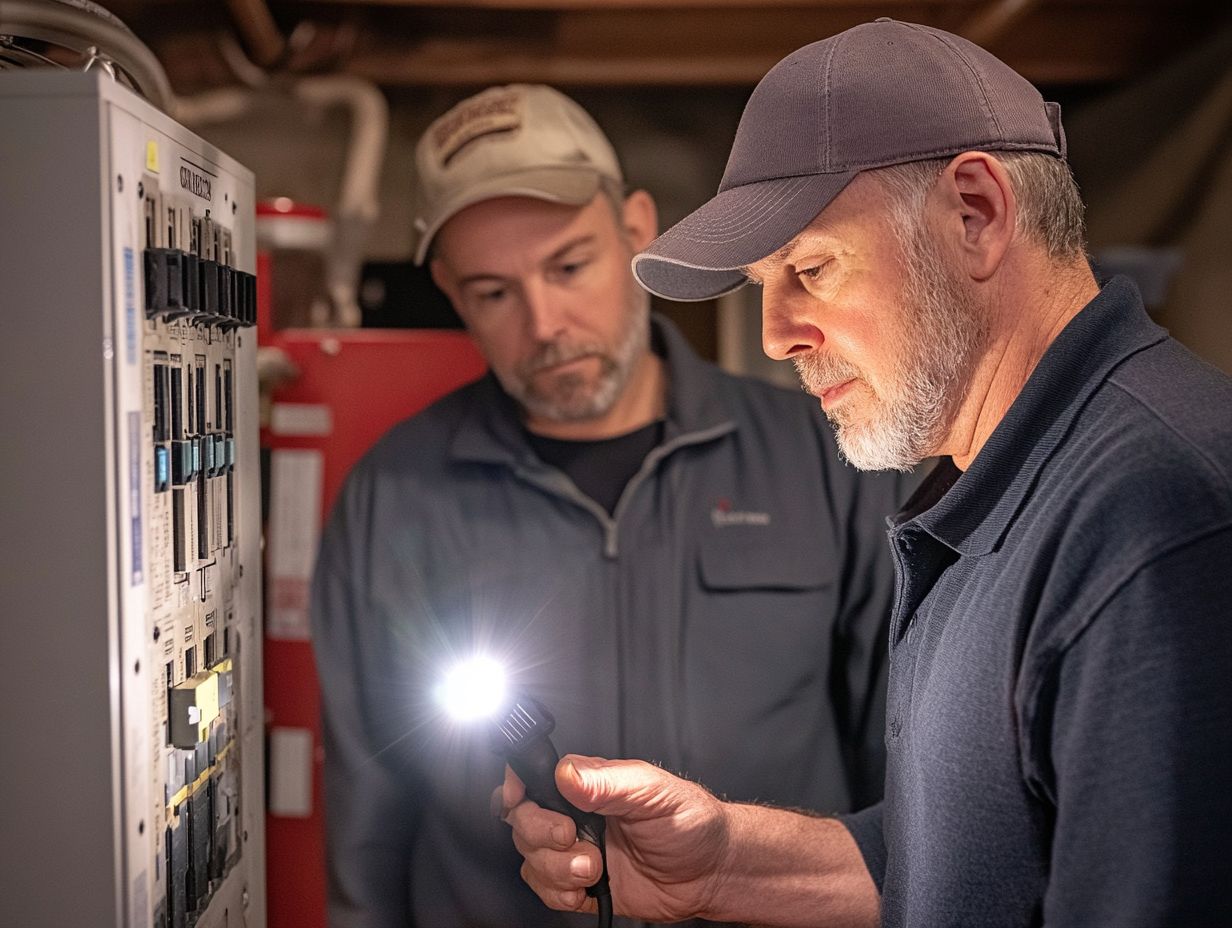
Conducting exterior safety checks is essential for evaluating the structural integrity of your home. This process involves assessing the foundation, inspecting for water damage, and performing a thorough pest inspection to identify any infestations that could undermine your property s value.
Taking these steps not only safeguards your investment but also ensures a secure and comfortable living environment.
Don t wait! Schedule your home inspection today to ensure your home is safe and sound.
Assessing How Strong Your Home Is
Assessing how strong your home is is fundamental to the home inspection process. It evaluates the foundation and overall stability while ensuring compliance with established inspection standards.
Inspect your home thoroughly now to prevent costly repairs later! This examination includes looking for irregularities in the foundation, such as cracks or settling, which could indicate deeper issues.
Visual inspections allow you to scrutinize walls, roofs, and other structural components for signs of wear or damage.
By identifying potential problems early, you can avoid the headaches and financial burdens that come with significant repairs later.
Maintaining a strong structure guarantees safety and safeguards your investment. It s essential for property owners to prioritize these evaluations during both the buying and maintenance phases.
Checking for Pests and Environmental Hazards
Checking for pests and environmental hazards is important for home inspections, as these factors can lead to structural damage and serious safety concerns if not addressed promptly. Understanding the importance of thorough home inspections can help ensure a safe living environment.
Common pests like termites, rodents, and carpenter ants can silently erode a property’s integrity, often going unnoticed until the damage escalates into costly repairs. Environmental hazards such as mold or radon a colorless gas that can be harmful to health not only jeopardize the health of residents but can also significantly diminish the home’s market value.
Protect your home s value by checking for pests early. During inspections, you must stay proactive about maintaining a safe living environment for yourself and your loved ones.
A thorough understanding of these risks enhances your well-being and protects your investment in the property.
Interior Safety Checks
Interior safety checks keep everyone in your home safe. This process involves evaluating plumbing issues, electrical systems, and fire safety measures, all of which are critical for ensuring that your home functions effectively and remains a secure sanctuary.
Evaluating Electrical and Plumbing Systems
Evaluating electrical and plumbing systems during home inspections is essential to identify safety hazards and potential issues. Understanding the key elements of a comprehensive home inspection can help prevent costly repairs if left unchecked.
These assessments ensure the safety and functionality of your future home while offering invaluable insights into the property’s overall condition. Problems like outdated wiring, hidden leaks, or code violations can significantly affect your peace of mind as a homebuyer.
By employing a comprehensive inspection checklist, you can thoroughly assess these critical systems, giving you the power to make informed decisions.
For many buyers, discovering red flags early in the process can be a game-changer, highlighting the importance of prioritizing these inspections during your home buying journey.
Inspecting for Fire Safety Measures
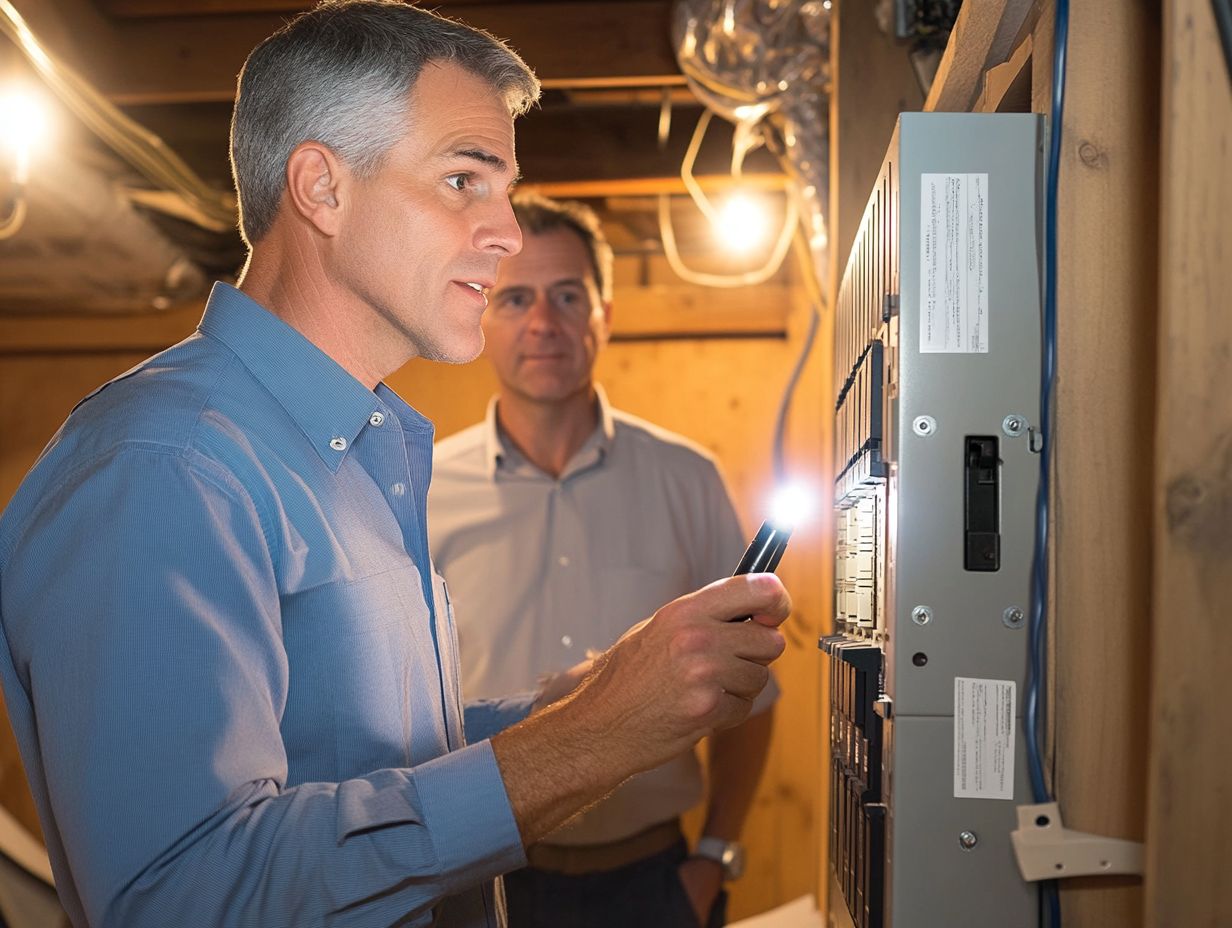
Inspecting fire safety measures, including smoke detectors and fire alarms, is a crucial aspect of the home inspection process. To learn more about this important step, check out how to prepare for a home inspection, which ensures that your property meets essential safety standards and regulations.
Also, check fire extinguishers and proper exits. Ensuring that all smoke detectors are functioning properly and strategically placed can significantly lower the risk of fatalities in the event of a fire.
Familiarizing yourself with local fire codes and regulations not only aids in ensuring compliance but also equips you with the knowledge to identify potential hazards and implement effective preventive strategies.
By prioritizing these elements, you can cultivate a safer living environment for your family and greatly reduce the likelihood of devastating consequences.
Preparing for a Home Inspection
Preparing for a home inspection is crucial for you, whether you re selling or buying. This preparation streamlines the inspection process and showcases the property s strengths while addressing potential issues.
Taking the time to get ready will make the experience smoother and more beneficial for everyone involved.
Don t wait start preparing for your home inspection today!
Steps to Take Before an Inspection
Before a home inspection, sellers and buyers should follow key steps. Completing a thorough inspection checklist ensures property maintenance is up to date and minor repairs are addressed.
This proactive approach helps identify issues early and builds trust among all parties. By examining every detail, sellers can fix problems like leaky faucets or cracked tiles issues that could raise red flags.
Buyers should research common fixes that often arise during inspections. They should also prepare questions to clarify any concerns.
Presenting the property well increases the chances of a smooth transaction. It also reduces the risk of last-minute surprises that could derail the deal.
Frequently Asked Questions
What are essential safety checks during home inspections?
Essential safety checks are thorough examinations of a property to identify hazards. This includes checking the building’s strength, as well as electrical and plumbing systems, and referring to the essential checklist for home inspections can help ensure nothing is overlooked.
Why are essential safety checks important?
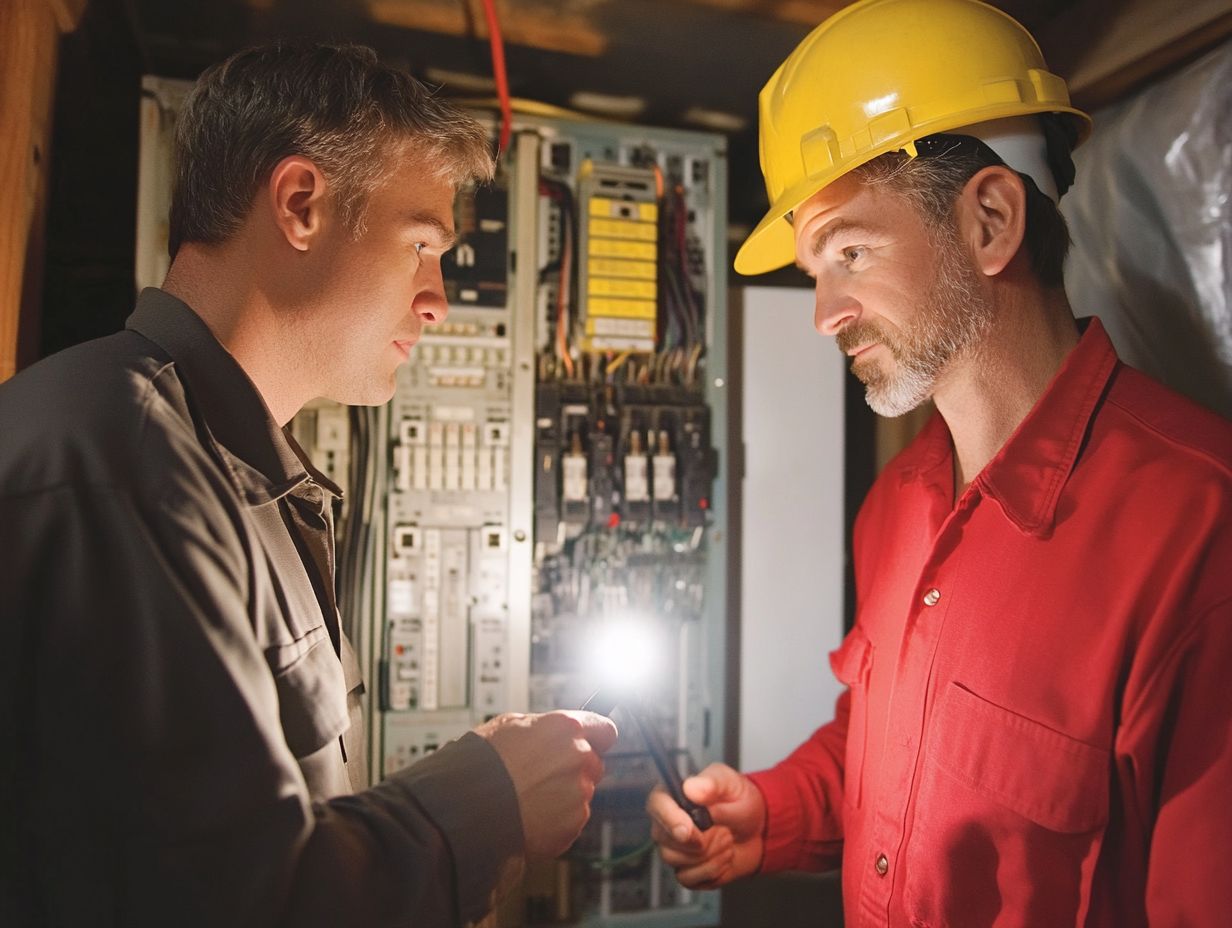
These checks ensure the safety of the occupants. They help identify hazards that may need immediate attention.
Who should conduct these checks?
A qualified home inspector should conduct essential safety checks, as they have the training to evaluate properties for safety concerns effectively. Understanding the importance of inspections for home safety can give homeowners peace of mind.
What areas require essential safety checks?
Common areas for safety checks include the roof, foundation, and electrical and plumbing systems. It’s important to be aware of the most common findings in home inspections, as inspectors also check for radon, lead paint, or asbestos.
Can homeowners perform these checks?
Homeowners can do basic visual checks, but hiring a professional is recommended. Inspectors have the tools and expertise to spot potential hazards homeowners might miss.
What if a safety concern is found?
If safety concerns arise, address them quickly. Homeowners can negotiate repairs or a price reduction, or choose to walk away from the purchase. It s best to handle these issues before finalizing the sale.

